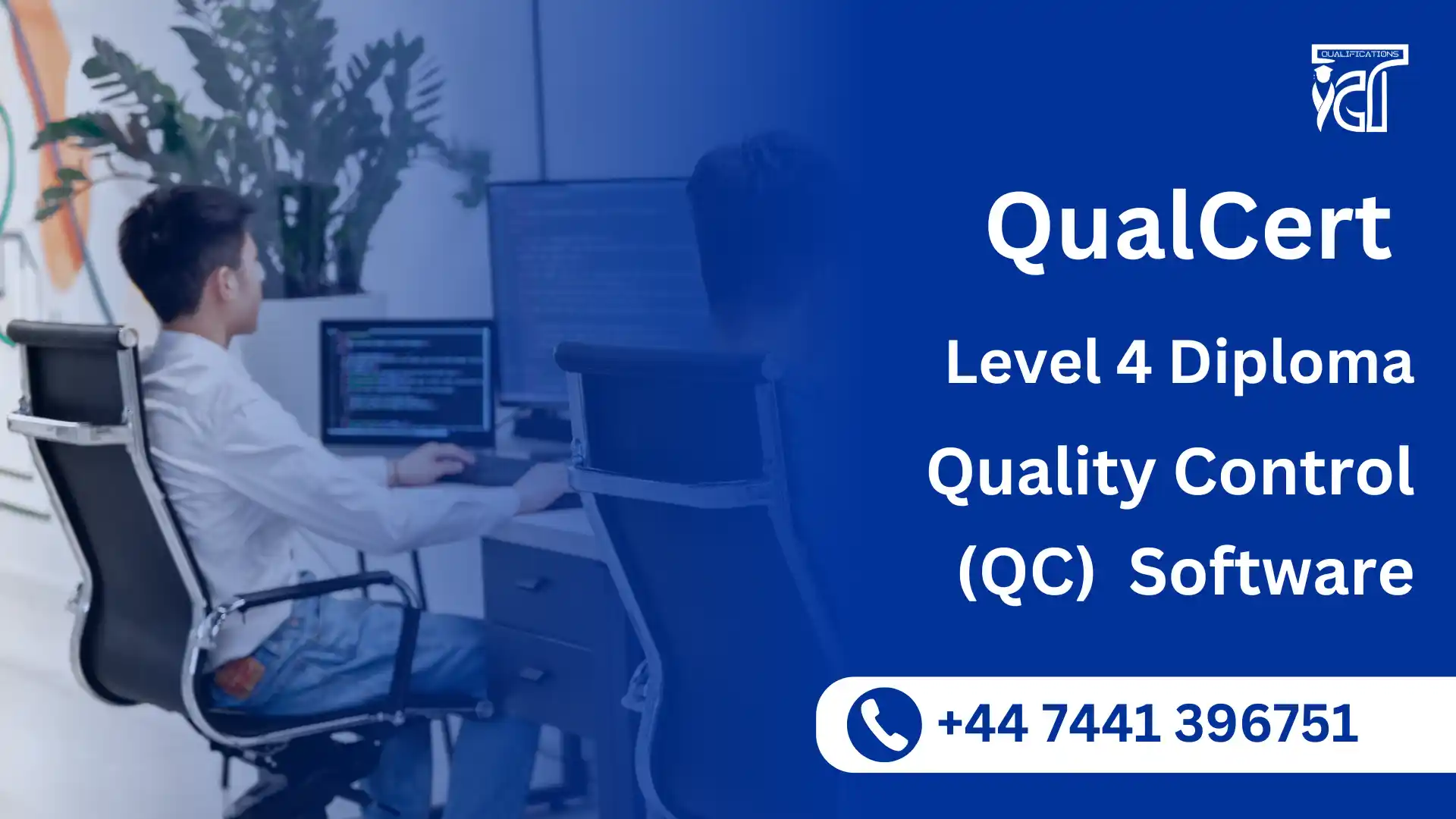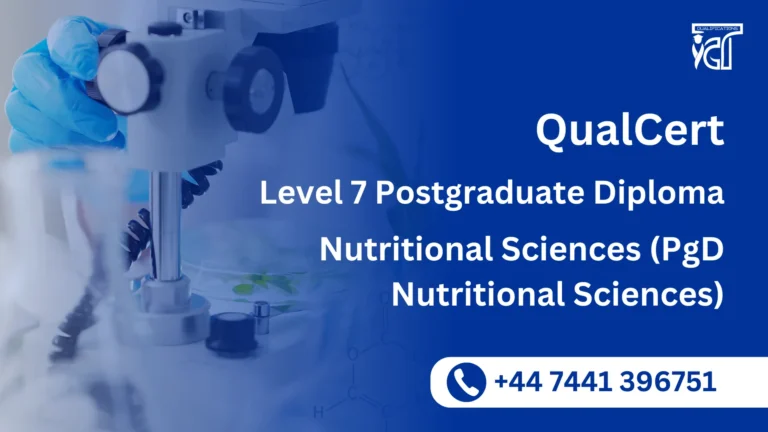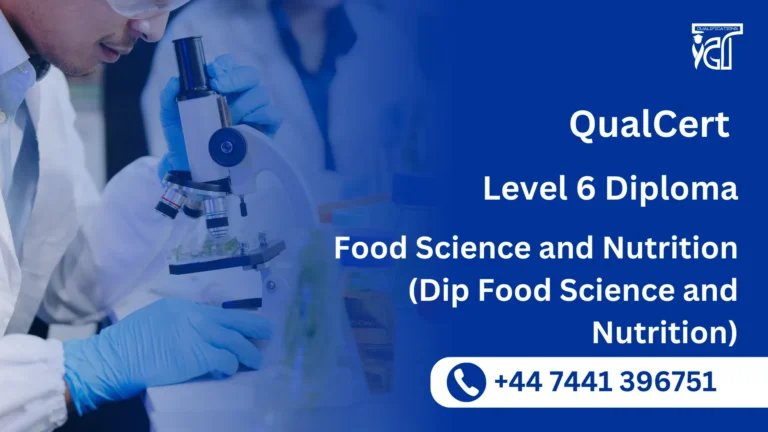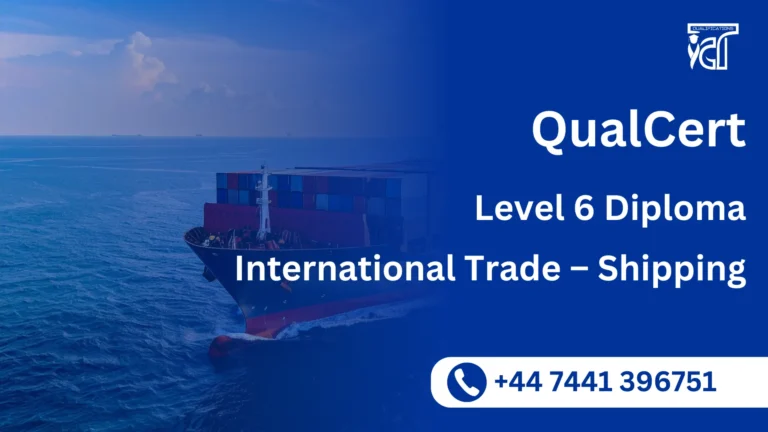The QualCert Level 4 Diploma in Quality Control (QC) Software is designed to equip learners with practical skills and foundational knowledge in software quality assurance. This qualification focuses on ensuring software products meet defined quality standards through structured testing, compliance, and control procedures. Learners will gain insight into essential QC methodologies, software testing techniques, compliance frameworks, and reporting practices widely used across the software development lifecycle.
Through this diploma, participants will explore the relationship between software development and quality control processes, emphasizing real-world application, defect prevention, and continuous improvement. The course serves as a solid stepping stone for individuals aiming to build or advance a career in software testing, QA analysis, or software project management.
Whether you are new to the software quality field or seeking to formalize your experience, this qualification provides a well-rounded foundation for professional growth.
QualCert Level 4 Diploma in Quality Control (QC) Software
The QualCert Level 4 Diploma in Quality Control (QC) Software comprises several study units designed to provide learners with a comprehensive understanding of QC principles and practices in the software sector. Below is the qualification structure, including the Total Qualification Time (TQT) 450, Guided Learning Hours (GLH) 270, and 72 Credits associated with the program.
| Unit Ref# | Unit Title | Credit | GLH | TQT |
| QC11011 – 1 | Enterprise-Level QC Management | 12 | 45 | 75 |
| QC11011 – 2 | Six Sigma and Lean Principles in QC Software | 12 | 45 | 75 |
| QC11011 – 3 | Advanced Statistical Process Control | 12 | 45 | 75 |
| QC11011 – 4 | Digital Transformation and QC Automation | 12 | 45 | 75 |
| QC11011 – 5 | Risk-Based QC Decision Making | 12 | 45 | 75 |
| QC11011 – 6 | Leadership in Quality Control Systems | 12 | 45 | 75 |
GLH (Guided Learning Hours) and TQT (Total Qualification Time) are terms commonly used in vocational qualifications to help define the amount of time a learner is expected to spend on their studies.
1. GLH (Guided Learning Hours)
GLH refers to the number of hours a learner spends being directly taught, supervised, or supported during their course. This includes the time spent in activities such as:
- Classroom instruction
- Practical workshops
- One-on-one tutoring or mentoring sessions
- Online learning sessions with tutor support
In other words, GLH represents the time that learners are actively engaged with their instructors or learning activities.
2. TQT (Total Qualification Time)
TQT represents the total amount of time a learner is expected to invest in completing a qualification, including:
- GLH (Guided Learning Hours): Time spent on direct learning, as explained above.
- Self-Directed Learning: This includes time spent on independent study, research, assignment completion, preparation for exams, and any other work the learner does outside of direct teaching hours.
TQT is a broader measure that includes all the time required to achieve the qualification. It helps learners and employers understand the overall commitment required for the qualification.
Key Differences Between GLH and TQT:
- GLH focuses on direct learning with guidance or supervision.
- TQT includes GLH as well as independent study time and other learning-related activities.
Example:
If a qualification has a TQT of 600 hours and a GLH of 250 hours, it means the learner should spend 250 hours in direct learning (classroom, online, or tutor-led sessions) and 350 hours on independent study or research.
Enterprise-Level Quality Control Management
Gain a deep understanding of managing quality control within large-scale software environments. Learn how to develop and implement strategies that integrate QC processes across multiple departments and projects. Apply best practices to maintain high-quality standards organization-wide, analyze key quality metrics for informed decision-making, and ensure compliance with international software quality and regulatory standards.
Applying Six Sigma and Lean Principles in Software QC
Master the application of Six Sigma methodologies to minimize defects and enhance software quality. Leverage Lean principles to streamline quality control processes and eliminate inefficiencies. Perform root cause analysis and corrective actions using DMAIC (Define, Measure, Analyze, Improve, Control). Effectively embed Six Sigma and Lean tools into development and testing workflows to boost performance and consistency.
Advanced Statistical Process Control (SPC)
Utilize SPC techniques to monitor, measure, and improve software processes. Interpret control charts to manage process variation and detect anomalies. Apply statistical and probabilistic models to forecast software reliability and performance. Make data-driven decisions to refine testing strategies and assess software process capabilities in line with industry benchmarks.
Digital Transformation and Automation in QC
Understand the role of digital transformation in revolutionizing software quality assurance. Implement cutting-edge automation tools to streamline testing and defect tracking. Explore the application of artificial intelligence and machine learning in automating quality control tasks. Build intelligent workflows that boost accuracy, efficiency, and adaptability in dynamic software environments.
Risk-Based Decision Making in QC
Identify, assess, and manage risks that impact software quality and performance. Apply structured risk management frameworks to prioritize testing and QC efforts. Develop strategies to mitigate risks, prevent defects, and ensure system reliability. Maintain compliance with regulatory standards through proactive, risk-based quality control planning.
Leadership in Software Quality Control
Build the leadership competencies needed to manage QC teams and drive quality initiatives. Cultivate a culture of continuous improvement and excellence within quality assurance environments. Enhance collaboration and communication across project stakeholders. Lead strategic change and innovation while using performance data to elevate the effectiveness of software quality control systems.
Course Benefits: QualCert Level 4 Diploma in Quality Control (QC) Software
1. Industry-Relevant Knowledge and Skills
Gain a solid foundation in quality control tailored specifically for the software industry. This course equips learners with practical tools, methods, and frameworks such as Six Sigma, Lean, and Statistical Process Control (SPC) to ensure quality in complex software development environments.
2. Enhanced Career Opportunities
This diploma opens doors to a range of roles in quality assurance, software testing, compliance, and software process improvement. It is ideal for individuals seeking career growth as Quality Control Analysts, Software Test Engineers, or QA Coordinators.
3. Ability to Implement QC at Scale
Learn to design and manage enterprise-level QC systems, enabling you to oversee quality practices across large projects, teams, or departments. This is critical for professionals working in organizations with complex software infrastructures.
4. Mastery of QC Automation Tools
Develop competencies in using automation and digital QC tools to increase testing accuracy, reduce manual effort, and speed up the software release cycle — a crucial advantage in agile and DevOps environments.
5. Globally Recognized Practices and Standards
Acquire knowledge aligned with international quality and regulatory standards, preparing you to work with global software teams and multinational organizations.
6. Data-Driven Decision Making
Leverage analytics, dashboards, and performance indicators to make informed, evidence-based quality decisions. This enhances your ability to predict and prevent quality issues proactively.
7. Improved Risk Management Abilities
Learn to identify quality risks early in the software lifecycle and develop effective strategies to manage and mitigate them — improving product reliability and user satisfaction.
8. Leadership and Strategic Thinking
Strengthen your leadership capabilities and strategic mindset to lead QC initiatives, improve team performance, and support organizational quality goals.
Ideal Learner for QualCert Level 4 Diploma in Quality Control (QC) Software
Aspiring Quality Control Professionals
This course is ideal for individuals who are new to the field of software quality control and want to build a solid technical and theoretical foundation. It provides the knowledge necessary to understand and implement QC systems in software environments.
Junior Software Testers and QA Assistants
If you’re already working in a testing or QA support role and wish to upskill, this diploma will deepen your understanding of quality methodologies, compliance, and automation, allowing for faster career progression.
Technical Graduates and IT Diploma Holders
Recent graduates in IT, computer science, or software engineering seeking to specialize in quality control will find this course highly valuable. It serves as a stepping stone to advanced roles in QA and QC management.
Professionals Transitioning into Software Quality
Engineers, project coordinators, or business analysts from other domains looking to pivot into software quality assurance will benefit from this structured introduction to industry standards, tools, and best practices.
Team Leaders and Supervisors in Software Development
Mid-level professionals managing teams or responsible for software delivery quality will gain critical insights into enterprise-wide quality frameworks, risk management, and data-driven QC strategies.
Entry Requirements
Entry Requirements: QualCert Level 4 Diploma in Quality Control (QC) Software:
To enrol in the QualCert Level 4 Diploma in Quality Control (QC) Software, candidates must meet specific prerequisites to ensure they are prepared for the course content and can benefit fully from the training. Here are the key entry requirements:
- Educational Background: Candidates should ideally have a foundational understanding of software development or related fields. A background in computer science, information technology, or software engineering is preferred. However, individuals with other relevant educational qualifications or professional experience may also be considered.
- Professional Experience: While there are no strict professional experience requirements, candidates with some experience in software development, quality assurance, or related roles will find the course more accessible and relevant. Experience in using software testing tools and methodologies is beneficial but not mandatory.
- Technical Skills: A basic understanding of software testing concepts and familiarity with software development life cycles is advantageous. Candidates should possess fundamental computer literacy, including proficiency in using various software tools and applications.
- Language Proficiency: Proficiency in English is required, as all course materials, lectures, and assessments will be conducted in English. Non-native speakers may need to demonstrate adequate English language skills through relevant qualifications or tests.
- Commitment and Motivation: Given the course’s comprehensive nature, candidates should demonstrate a strong commitment to learning and a genuine interest in advancing their knowledge and skills in software quality control.
Register Now
Qualification Process
Qualification Process for the QualCert Level 4 Diploma in Quality Control (QC) Software
- Self-Assessment:
Begin by evaluating your eligibility to ensure you meet the qualification requirements, including work experience, knowledge, and language proficiency. - Registration:
Complete your registration by submitting the required documents, including a scanned copy of a valid ID, and paying the registration fee. - Induction:
An assessor will conduct an induction to confirm your eligibility for the course and explain the evidence requirements. If you do not meet the criteria, your registration will be canceled, and the fee will be refunded. - Assignmnets & Evidence Submission:
Provide all assignmnets and the necessary evidence based on the assessment criteria outlined in the course. If you are unsure of the required evidence, consult with the assessor for guidance on the type and nature of evidence needed. - Feedback and Revision:
The assessor will review your submitted evidence and provide feedback. Evidence that meets the criteria will be marked as “Criteria Met,” while any gaps will be identified. You will be asked to revise and resubmit if needed. - Competence Evidence:
Submit final evidence demonstrating that all learning outcomes have been met. This evidence will be marked as “Criteria Met” by the assessor once it is satisfactory. - Internal Quality Assurance (IQA):
The Internal Quality Assurance Verifier (IQA) will review your evidence to ensure consistency, quality, and compliance with standards. - External Verification:
The IQA will submit your portfolio to QualCert External Quality Assurance Verifiers (EQA) for final confirmation. The EQA may contact you directly to verify the authenticity of your evidence. - Certification:
Upon successful completion of all checks, QualCert will issue your official certificate, confirming that you have attained the QualCert Level QualCert Level 4 Diploma in Quality Control (QC) Software.







